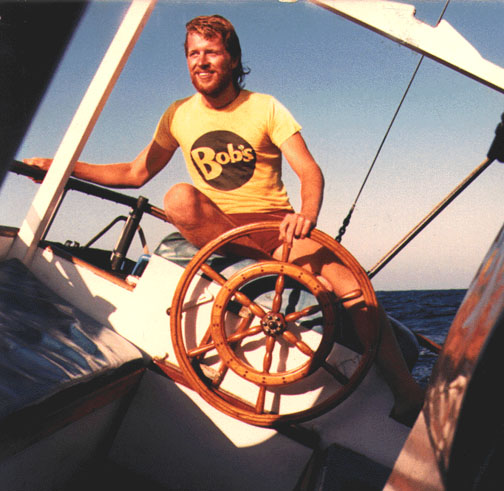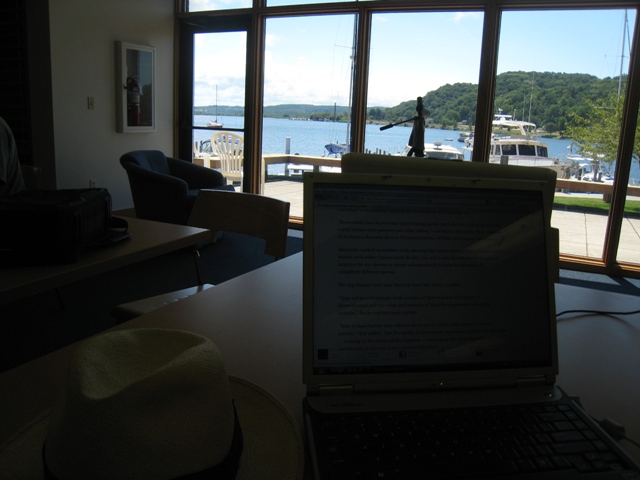The techniques of cultural critique that zeens made accessible in the 90’s are a good thing. Anthropology isn’t just something to do on tribes. Every aspect of culture needs it.
This is a lesson that the field of literature and publishing needs to learn as well. Badly. If they don’t learn it, they’re doomed to irrelevance. No way around it. Film and music have popularly accepted the idea that the mainstream is a corrupt racket. As a related result indy fields have flourished in those areas. The ever-shrinking fields of literature and print publishing are still pretending. They can do this because they haven’t been exposed well enough yet.
I keep running into outrageous examples of blithe disregard of the
most relevant aspects of writing in contemporary work.
Contemporary writers who are rich are forever forgetting to
mention it! This is lame. And embarrassing. The assumption is that we’re all rich, aren’t we? Or we wouldn’t be reading such literary niceties. But an article or artwork is worthless if one created it under conditions that determined the outcome and never mentions those conditions.
Just this morning I read part of an article about a boat voyage that really tripped up on this.
Now, I did some little boat-trips myself while living aboard an old wood sailboat. But I don’t just leave you with that. Oooo, he had a boat! He must be rich! This boat
was abandoned to me. It wouldn’t be scrapped if I fixed it and paid
its debts. It was in the Skid Row of L.A. Harbor. It was cheap but no one wanted it. Like many boats, actually. And it was a great base of adventure while I did my
book-sales telemarketing job (often from the dockside payphone).
My civilized friends were too afraid to go far on it (it was rickety) but the local winos weren’t scared! Well, if we didn’t go TOO far. (Anyone with half a brain would’ve been scared to go TOO far on this boat.)
So that’s my boat background. I’ve always been nuts for boats. But for me to own one it had to be a free boat. Of course no boat is free. They take all you have. I learned that. But one does
anything for love. Including eat one meal a day. My experience anyway.
On this boat was where I first realized that my life and the life I saw everywhere around me,
and the life that could be found in print were conflicting
things that were never going to come together unless I did something about
it. My wino pals and I were almost the only people we ever saw use a boat.
We had great times in our strange huge world of the industrial harbo.
Yet our world didn’t exist in print. The world of print
was, furthermore, never witnessed by us. And we
visited fancy places, too. We worked in boatyards around all sorts of
boats and customer-types. Basically, what was in print was lies. An
article on fixing a boat would not be how hardly any boat was actually fixed.
An article on beautiful people sailing was a joke. Most real sailors are scary winos!
So it wasn’t just our world not being in print, the REAL world seemed not to
be there. Print was fantasy. Not very helpful, except as a soothing agent
to those who didn’t want reality.
This was before zeens. But it’s when I got the idea to do my own mag for
the real people who were left out. So they could share stories and advice.
Worldwide. Wherever the people I talked to wandered we found people we could
relate to, rich and poor, all kinds: but none of them were like those who were in print.
It seemed like some reality might be cool to have as a change of pace.
With that background, I read that boat story today. The guy wanted a big
ocean adventure. He doesn’t know how to sail. He tells his wife he’ll be
leaving on a sail trip for half a year. She says OK. He calls an old grunt
sailor friend he hasn’t seen in years. He catches him at a bar (by way of
cellphone). The guy says Sure, he’ll go. They go shopping for a boat.
They’re in the UK. They shop around the world. For just the right boat that this guy
LIKES above all else. One that looks just the right kind of CUTE. They find a sweet boat and
buy it. It’s not quite right so they give it a makeover.
WHO ARE THESE PEOPLE? What is not being said that’s important?
First, the guy has to be not just rich but super-rich, maybe he’s
nobility. Secondly, the helping friend has to be a HIRED friend. Maybe the writer is famous, and has a book and movie deal in hand. That salty friend dropped everything to give a half year to this guy he hardly knew. WHAT’S UP WITH THAT? It was a CLUNKER. It rang FALSE. A good story wouldn’t do that. Wouldn’t embarrass itself with the presumption that that’s how life can work. Without
knowing, briefly, the real score, someone reading this story might get the wrong idea
about how the world works. We might be left with class assumptions
unexamined. And we wouldn’t want that, would we? (Maybe it was the magazine editor who considered the most important circumstances to be unimportant—someone needs to step
up here.) It’s fine if the guy is rich or a mag is for rich people: it’s RIDICULOUS if they pretend it’s not germaine to a boat story, that it doesn’t determine what happens and why.
You’d never read an article by a regular person that would neglect to
mention the circumstance of a huge, outlandish undertaking.
Heck, even in my little background, for me to say that I lived on a boat
could be misleading. How can a regular guy do that? In my case, it was
because I was willing to be a bum and only needed a phone to do my job. The life of
boating can be done on the Skid Row level. And it can still even have some
glamor. I thought so anyway. A boat is always cool. But one owes it to the reader to mention
how you came to do it.



